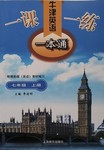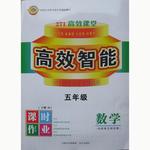��Ŀ����
19���ٶ����������У���David���й���ͳ�Ļ��ܸ���Ȥ������������ѧУ�����廪��ѧ�������ڵ�У�����������David��һ������ʼ������������μӲ����ܽ������й����ˣ�| �������� | "���Ӽ���˼��"�� |
| �������� | �廪��ѧ�������ڣ� |
| ����ʱ�� | 5��7�գ�������������8��00-11��00�� |
| �����ص� | 3�Ž�ѧ¥һ¥102�ң� |
| ����� | �����������ۣ��ж����Ӿ�������ȣ� |
1������100���ң�
2�������ʵ�����ϸ�ڣ���ʹ�������
3����ͷ�ͽ�β�Ѹ������������ܴ�����
4���ο��ʻ㣺���� Confucius������˼�� Confucianism��
Dear David��
��
Yours��
Li Hua��
���� ���IJ�����"����+�����"��ʽ����������������ʾ��Ϣ�������й���ͳ�Ļ��ܸ���Ȥ���David��һ������ʼ����������μ��廪��ѧ�����ڵ�У�����Ľ����ͽ��ܽ������й����ˣ�
д��Ҫ�㣺1���������ݣ�2���������ڣ�3������ʱ�䣻4�������ص㣻5������ţ� ���������������ͼ�������ģ�
д��ʱʱ̬��һ������ʱ��һ�㽫��ʱΪ�����˳��Ե�һ�˳ƺ͵����˳�Ϊ����
��Ҫ���write to ��д�Ÿ�������invite sb to do������ij����ij�£���on the first floor ���ڵ�һ�㣩��as far as I know��������֪���Ķ��ԣ���enjoy sth ��ϲ��ij���last sth����������from ��to �����ӡ���������consists of ���ɡ���ɣ���listen to the lecture �����ݽ�����classics recitation ���������䣩��look forward to����������
���߷־���һ��
1��I'm writing to invite you to the lecture on"Confucius and Confucianism"which will be made by Professor Wang from Tsinghua University��
�˴����ɹ�ϵ����"which"�����Ķ���Ӿ䣬���д�Ϊ"the lecture"����ϵ����"which"�ڴӾ��������
1��As far as I know��you like the traditional culture of China��so you will enjoy it��
�˴���������"so"���ӵ��������еľ��ӣ���������֮��Ϊ�����ϵ��
��� Dear David��
I'm writing to invite you to the lecture on"Confucius and Confucianism"which will be made by Professor Wang from Tsinghua University�����߷־���һ�����������ݡ��������ڣ�It will be held in Room 102 on the first floor of No.3 building on May 7th this Saturday���������ص㡢����ʱ�䣩As far as I know��you like the traditional culture of China��so you will enjoy it�����߷־��Ͷ���The lecture will last three hours from 8 a��m to 11 a��m��The activity mainly consists of three parts��two-hour listening to the lecture��half an hour's discussion and thirty-minute Confucius classics recitation��������ţ�
I will be very glad if you come��Looking forward to your early reply��
Yours��
Li Hua
���� ����������д��Ҫע�⣺1����ͬ����ĸ�ʽ������"���ʽ"����.2������ͨ������"Ӳ��ʽ"����������еĺ�����ʾ���������������ǿ������ʱ�м�������䷭�룬Ҫ������������в��䣻��Ϊ�����ӵĺ�����ʾӦ���ڱ�ͨת����3���νӣ�����"����ʽ"���ʹȫ����ƪͨ˳���ᣮ

 һ��һ��һ��ͨϵ�д�
һ��һ��һ��ͨϵ�д� �㽭֮��ѧҵˮƽ����ϵ�д�
�㽭֮��ѧҵˮƽ����ϵ�д� ��Ч���ܿ�ʱ��ҵϵ�д�
��Ч���ܿ�ʱ��ҵϵ�д�---Tiring!All the seats in the train ________��I stood all the way����������
| A�� | were occupied | B�� | would be occupied | ||
| C�� | would occupy | D�� | had occupied |
| A�� | to discover | B�� | to be discovered | ||
| C�� | discovered | D�� | being discovered |
-Oh��really��I _____ it at all����������
| A�� | didn't realize | B�� | don't realize | ||
| C�� | haven't realized | D�� | hadn't realized |